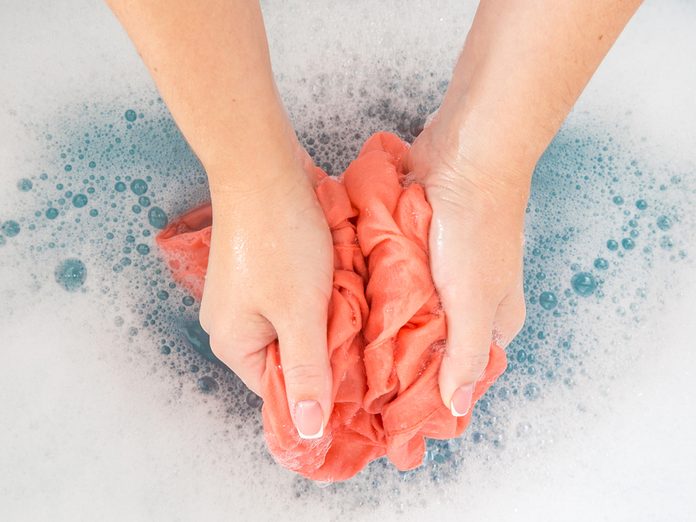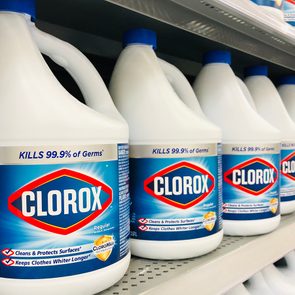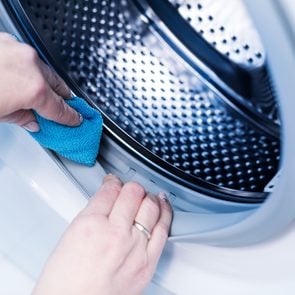What You Need to Know About Laundry Stripping

Find out how laundry stripping can reveal hidden grime that's deeply embedded in your sheets and towels.
Ready for an oddly satisfying way to deep-clean your laundry? Laundry stripping is a method of washing clothes, sheets and towels that allows you to actually see all the dirt and grime that’s hanging out on your supposedly clean linens. It’s kind of gross; but also totally gratifying when you’re done, knowing your laundry is probably the cleanest it has ever been.
Here’s everything you need to know about laundry stripping—and how to DIY.
What is laundry stripping?
Laundry stripping is essentially a soaking method meant to deep-clean your laundry. The soak is done in a Borax solution that removes built-up residue from detergent, hard water, body oils and fabric softener. What makes it so satisfying (but also might leave you slightly horrified) is that often the soaking water turns brown or gray from all the gunk that is “stripped” away from your linens! (Here’s how to tell if you’re using too much laundry detergent.)
How to strip your laundry
You’ll need:
- Borax
- Washing soda (sodium carbonate)
- Laundry detergent
- Bathtub (or large bucket)
Step 1: Make the soaking bath
First, you’ll need a vessel large enough to soak the linens you want to strip. We recommend using the bathtub, but you could also use a large bucket or bin. Fill the bathtub with hot water. Add one part Borax, one part washing soda and two parts laundry detergent. For a bathtub, we recommend ¼ cup Borax, ¼ cup washing soda and ½ cup detergent.
Gently stir the water to dissolve the powders.
Step 2: Soak the linens
Add clean laundry to the water, completely submerging it. Let everything soak about four to five hours, or until the water is cool. Stir the water and swish the laundry around occasionally; the movement helps to remove the dirt and grime from the fabric.
Step 3: Rinse
Remove the laundry from the bathtub and drain the water. (Don’t forget to admire the gross murky brown colour!) Now run the laundry through the washing machine, using a rinse cycle without detergent. Dry the laundry as you normally would; then enjoy your crisp, super-clean linens!
When you should (and should not!) use laundry stripping
Laundry stripping is great for sheets and towels because those items are used frequently and can easily collect a buildup of body oils and detergents. If your towels feel less absorbent than usual, and your sheets look a little dingy, it might be time to try your hand at laundry stripping.
Be careful with colourful linens, because laundry stripping can cause dyes to run. You’ll also want to avoid delicate linens like lace or embroidered pieces. Also, clothing isn’t a great candidate for stripping.
Remember, laundry stripping requires hot water; so keep that in mind and check care label tags before you get started.
Next, find out the laundry mistakes you’ve been making—and what to do instead!






